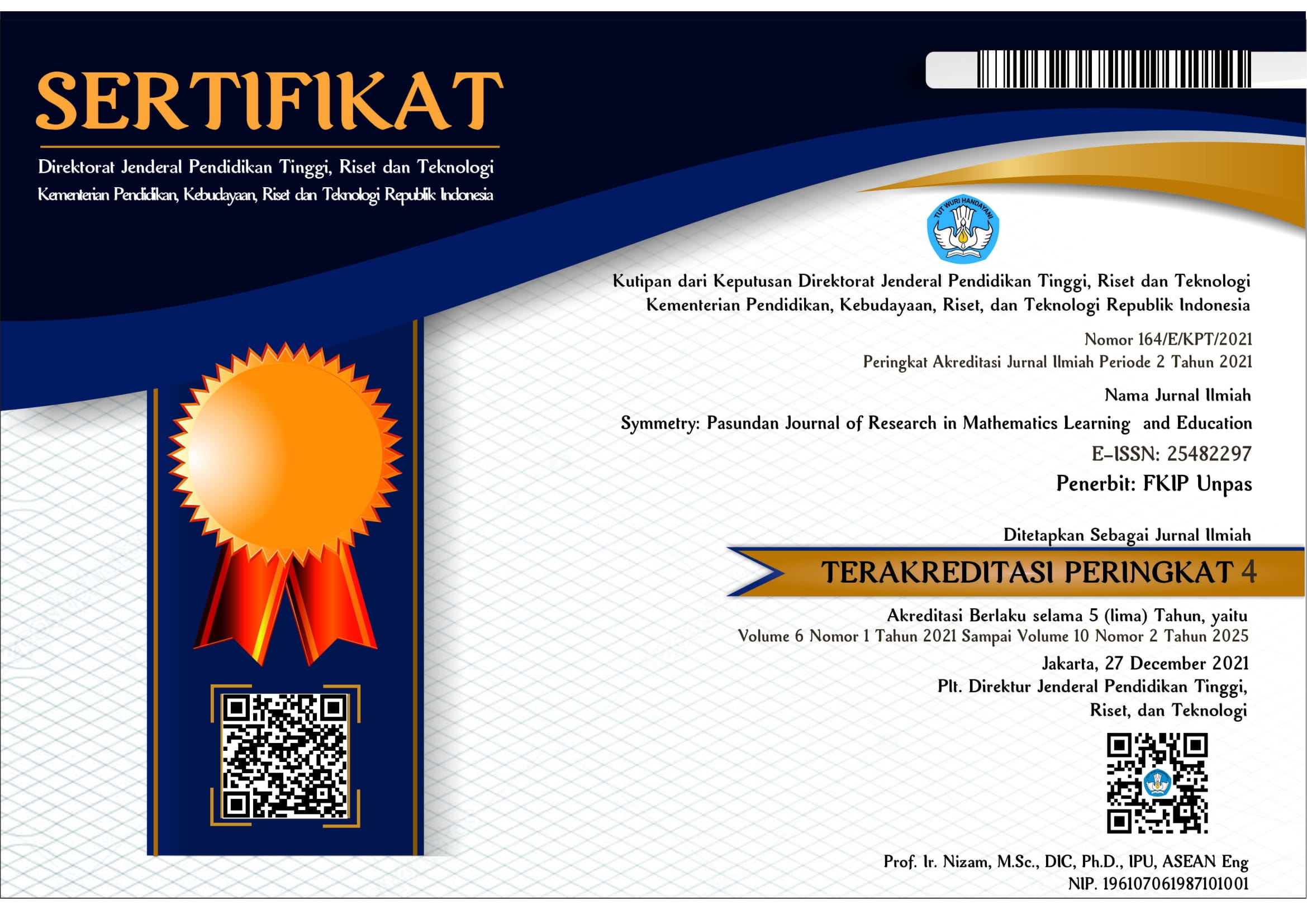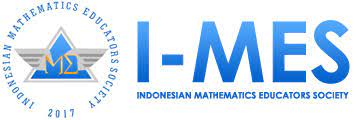About the Journal

|
Journal Information
| Journal title | : | Symmetry : Pasundan Journal of Research in Mathematics Learning and Education |
| Initials | : | Symmetry |
| Abbreviation | : | Pasundan j. of res. in Mathematics Learning and Education |
| Frequency | : | 2 issues per year (June and Desember) |
| DOI | : | 10.23969/symmetry by crossref |
| Print ISSN | : | 2548-2297 |
| Online ISSN | : | 2548-2297 |
| Editor-in-chief | : | Dr. Dahlia Fisher, M.Pd. |
| Associate Editor | : | Thesa Kandaga, S.Si., M.Pd. |
| Publisher | : | Universitas Pasundan and Indonesian Mathematics Educators' Society (IMES) |
| Citation Analysis | : | Sinta | Google Scholar |
The contents of this journal are publications of the results of thoughts of practitioners and experts in learning and mathematics education both substantially and or internationally standardized mathematics education research results both in schools and in universities. It is hoped that this journal can contribute thoughts and be a reference for mathematics education research and policy for the achievement of improving the quality of mathematics education at both the school and college level. In addition, the authors can collect cumulative for higher functional levels, which in turn can improve the quality of human resources in mathematics education research in general.
Focus and Scope
This journals is an international journal, publishing original refereed articles on all aspects of mathematics education. Papers should address the central issues in terms which are of relevance across educational systems and informed by wider thinking in the field. The journal has three sections, covering research papers, book reviews, and current reports. The Research Papers section contains reports of studies involving empirical investigation and theoretical argumentation from which conclusions and implications can be drawn for future research and practice. Such reports are expected to show how the study builds on critical review of relevant literature and to provide an account of the methods and procedures used. Reports on thoughtful replications or variations of key earlier studies are welcome, as are critical reviews of some well-defined aspect of mathematics education. The journal welcomes high-quality research in any methodological tradition and is open to innovative and unusual approaches. All submissions are peer-reviewed.




















